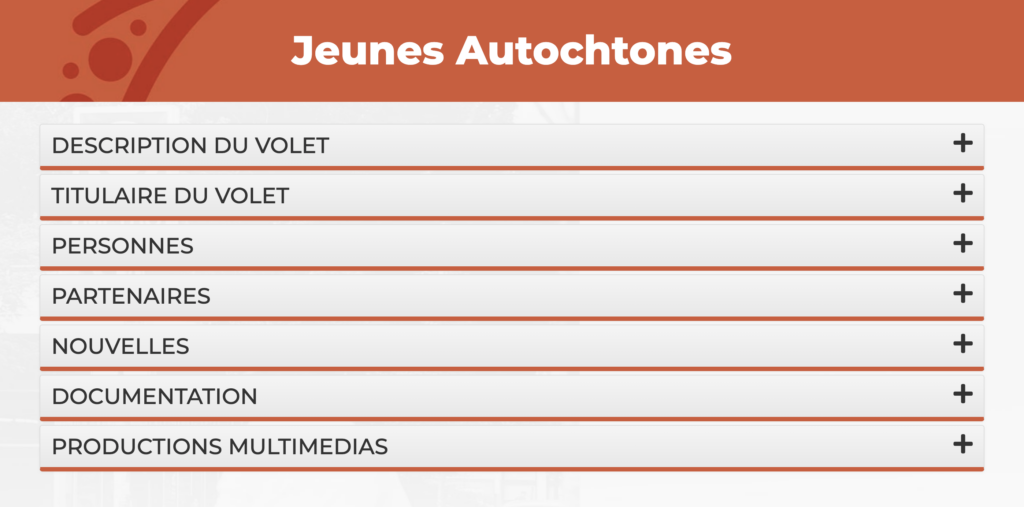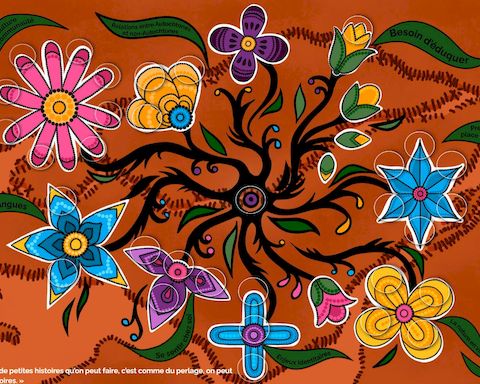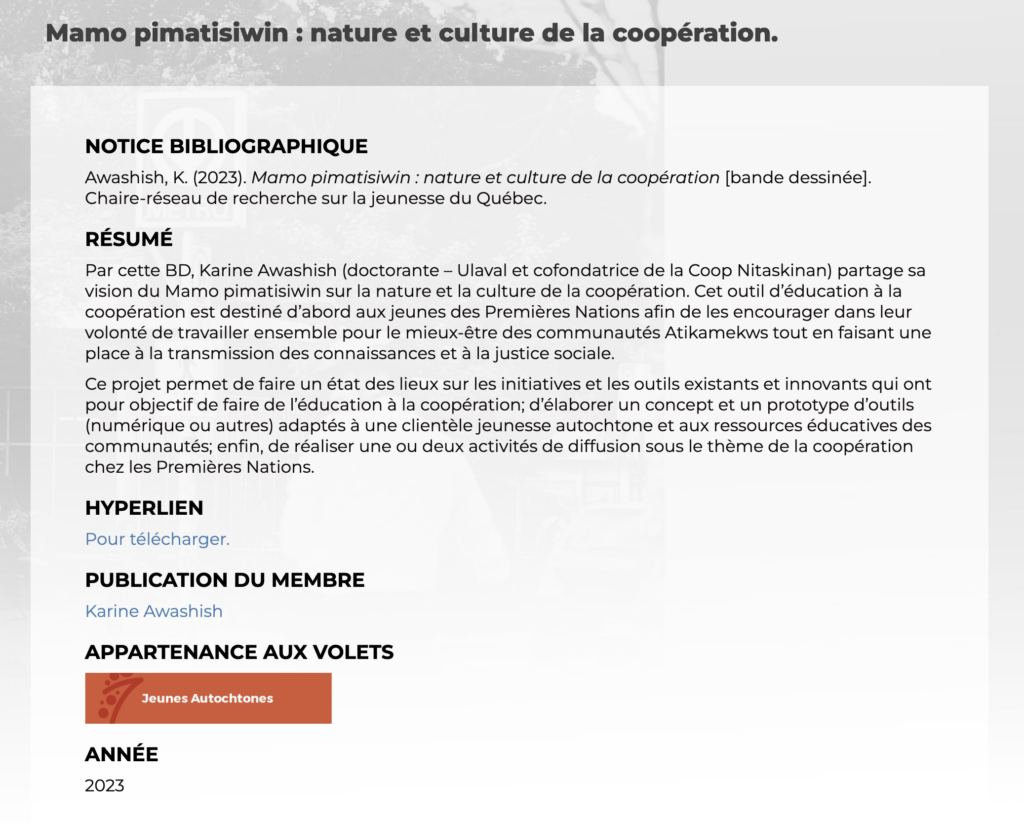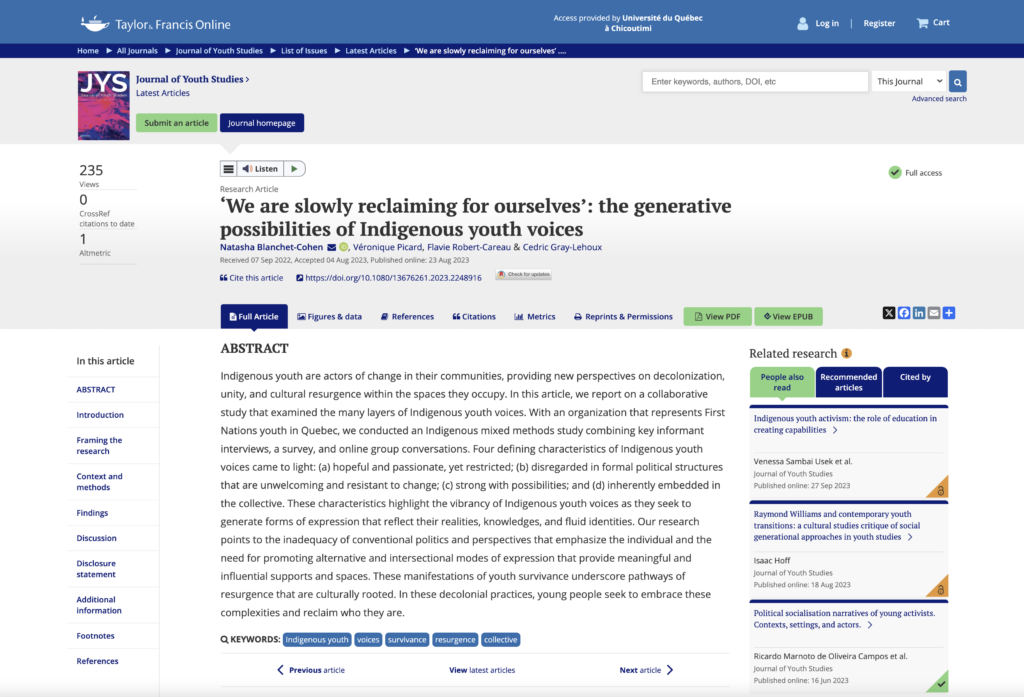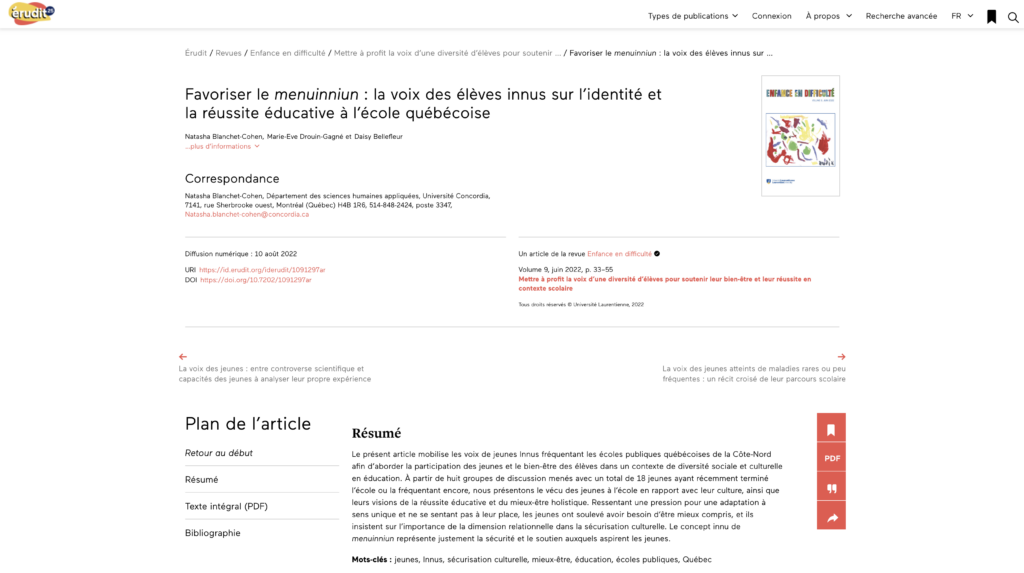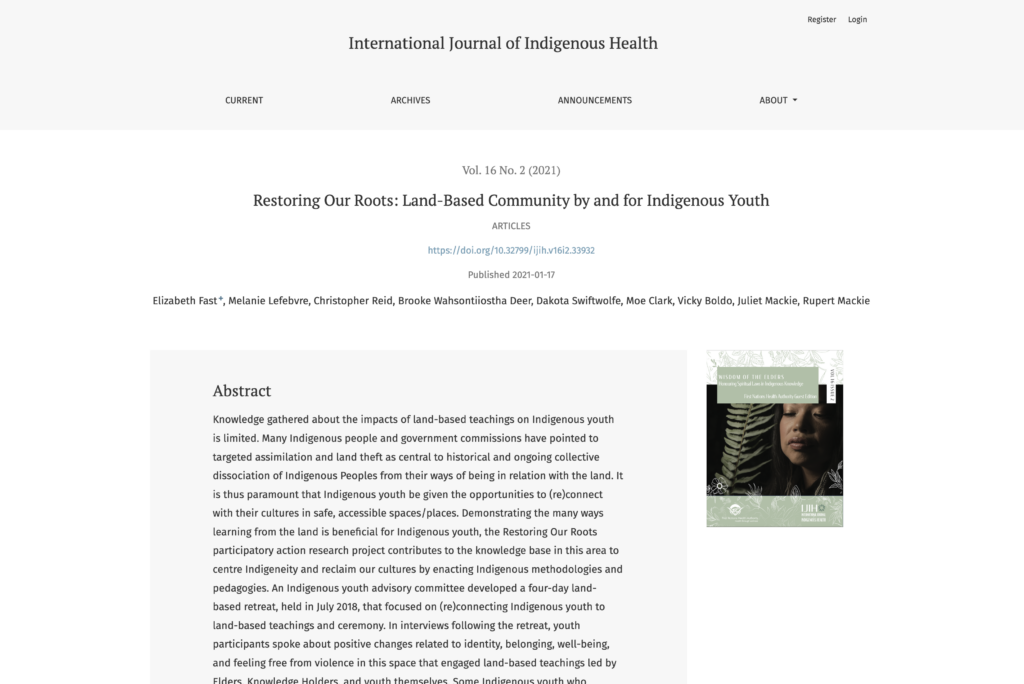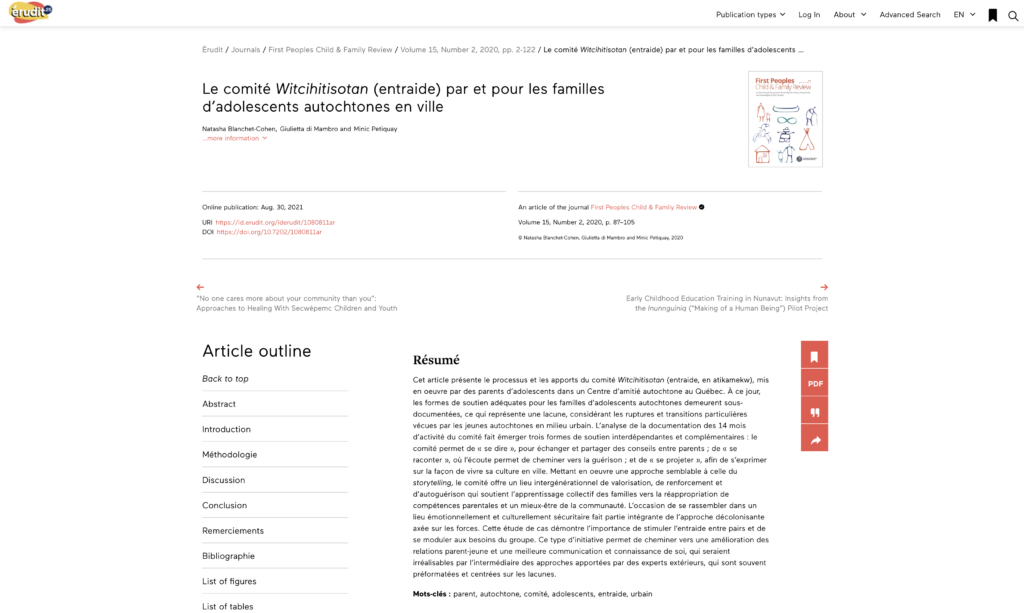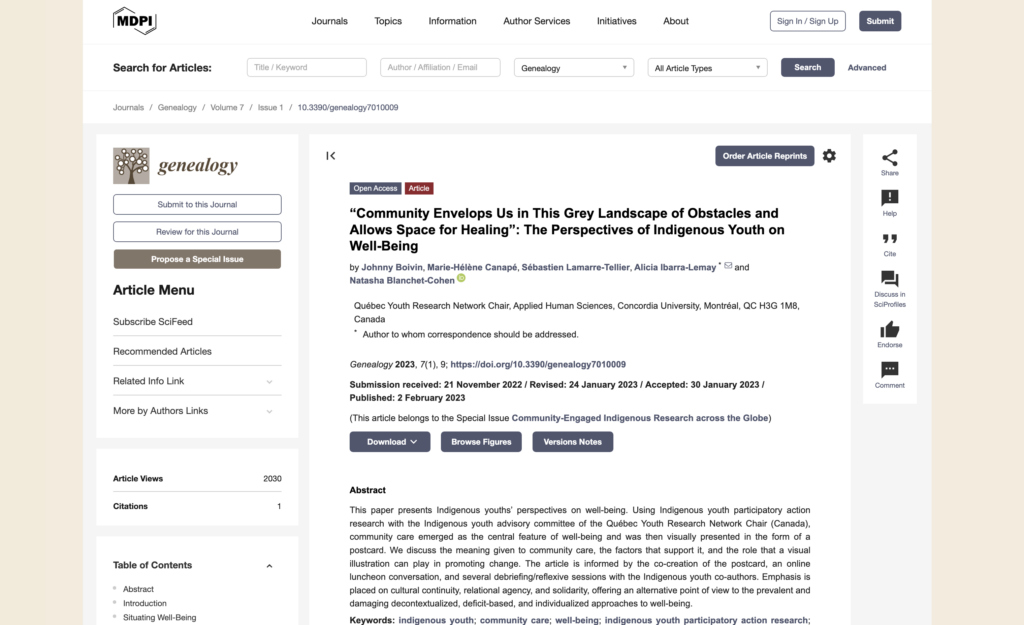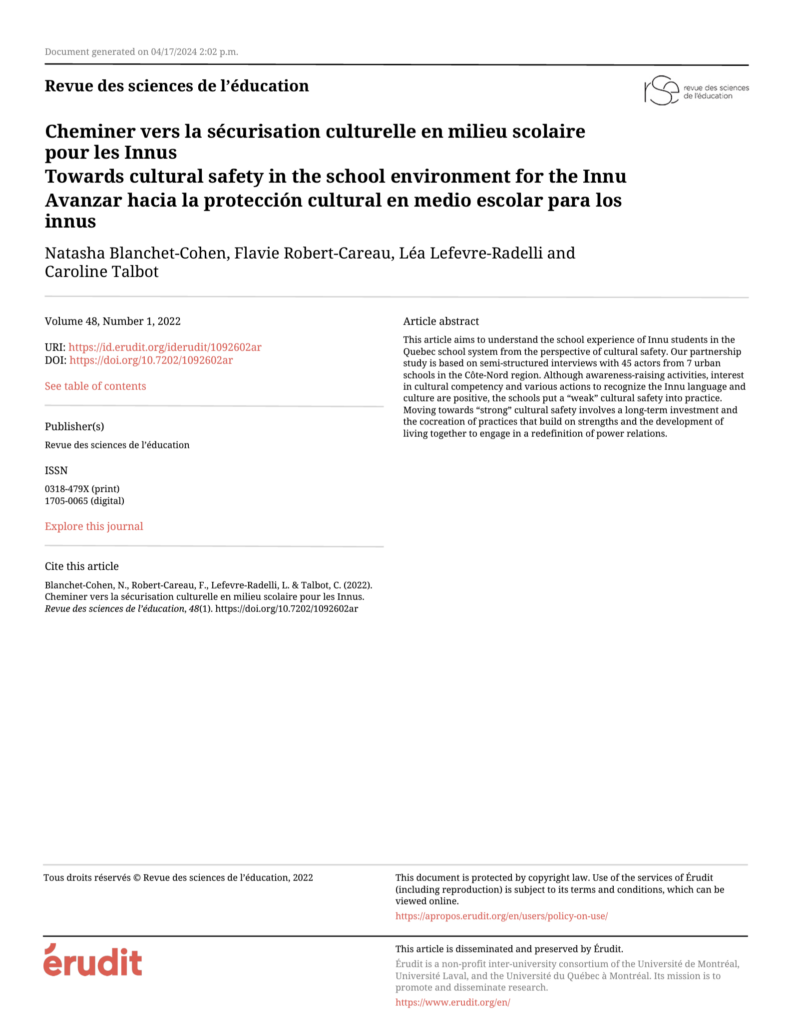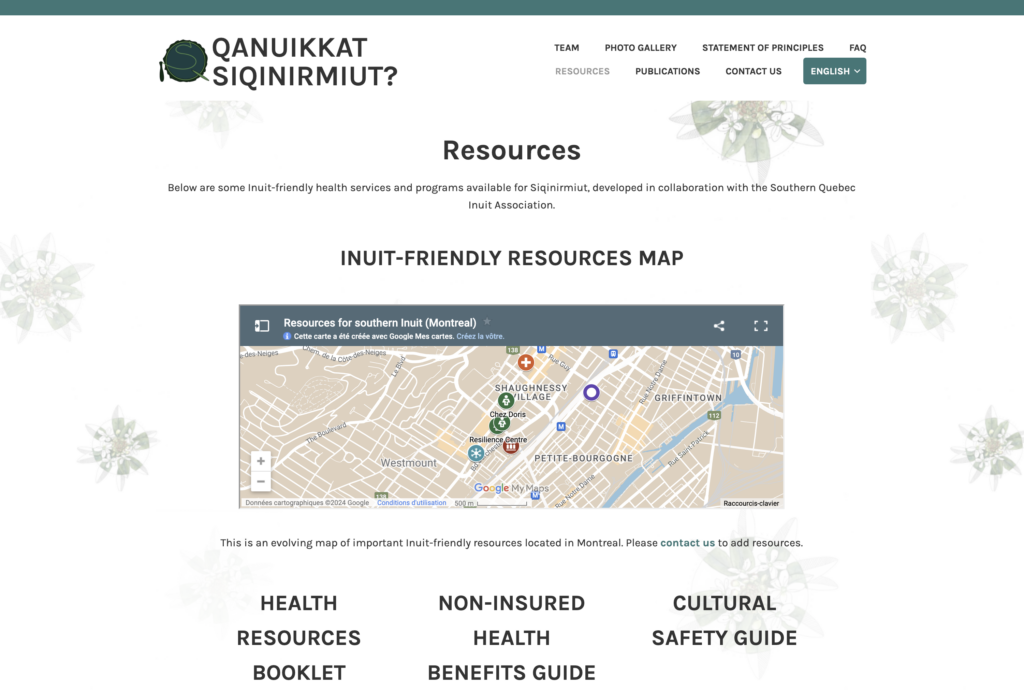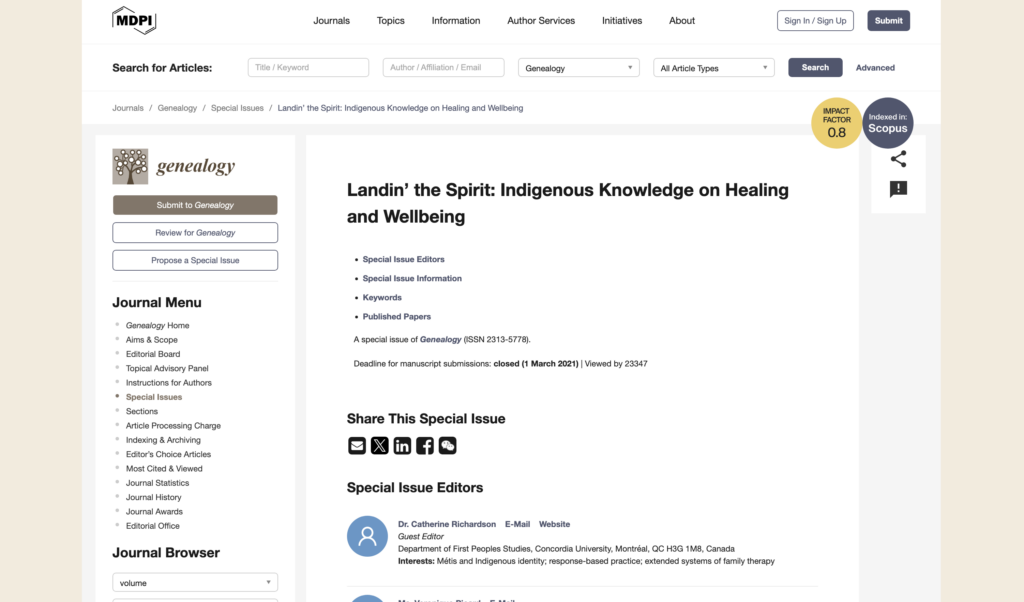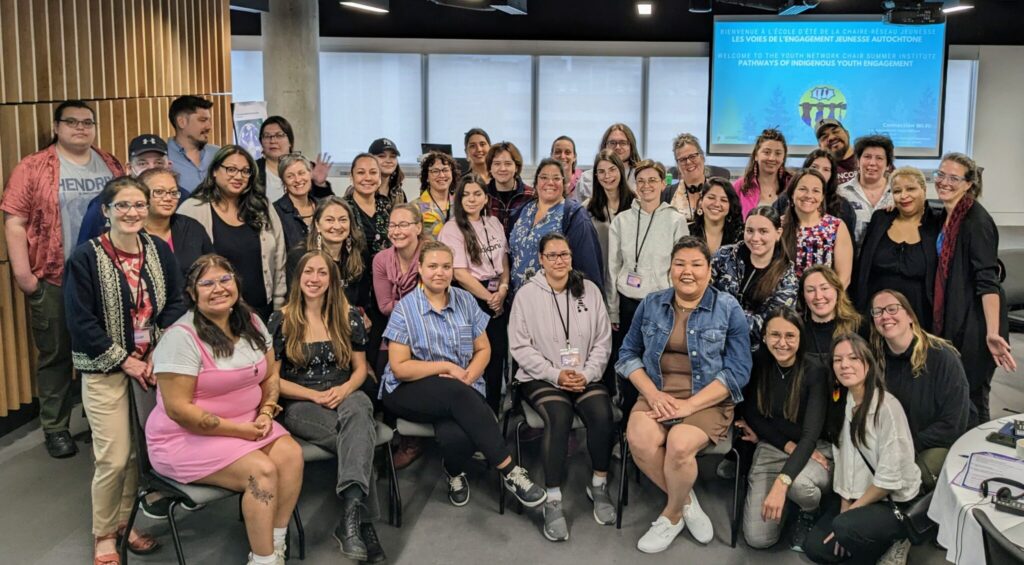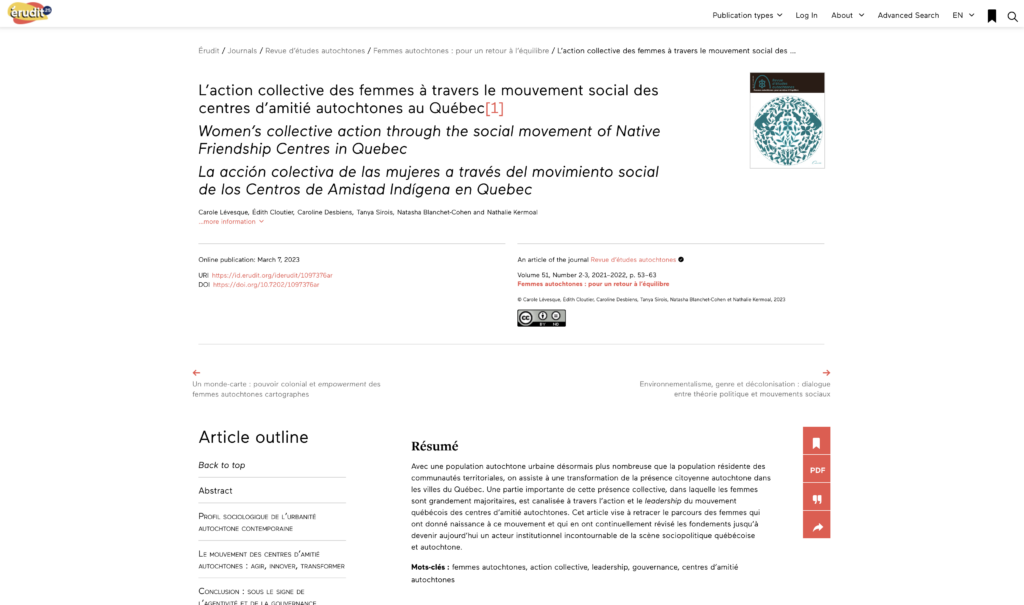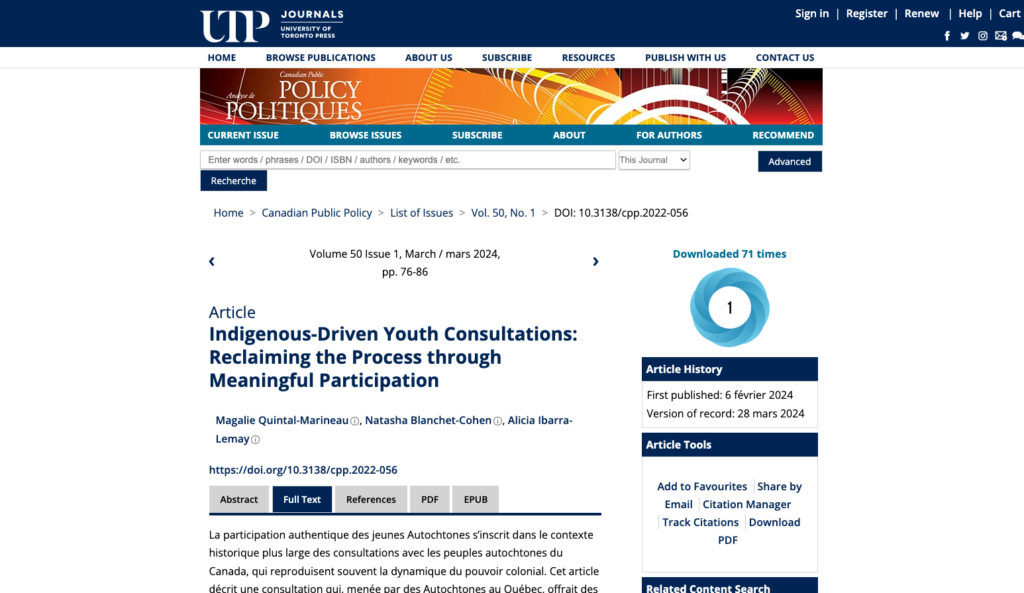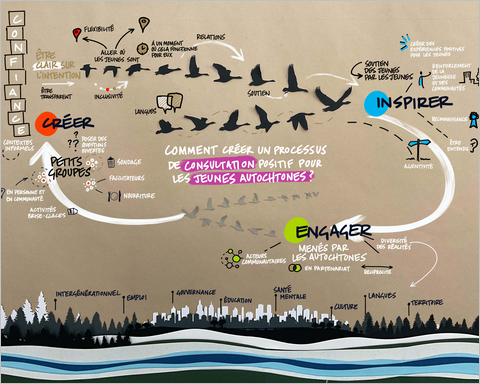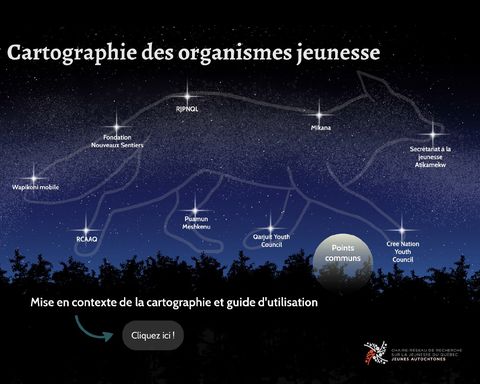Notice bibliographique
Fast, E., Lefebvre, M., Reid, C., Deer, B., Swiftwolfe, D., Clark, M., Boldo, V., Mackie, J., Mackie, R. et Tutanuak, K. (2021). Restoring Our Roots: Land-Based Community by and for Indigenous Youth. International Journal of Indigenous Health, 16(2), 120-138.
Résumé
Knowledge gathered about the impacts of land-based teachings on Indigenous youth is limited. Many Indigenous people and government commissions have pointed to targeted assimilation and land theft as central to historical and ongoing collective dissociation of Indigenous Peoples from their ways of being in relation with the land. It is thus paramount that Indigenous youth be given the opportunities to (re)connect with their cultures in safe, accessible spaces/places. Demonstrating the many ways learning from the land is beneficial for Indigenous youth, the Restoring Our Roots participatory action research project contributes to the knowledge base in this area to centre Indigeneity and reclaim our cultures by enacting Indigenous methodologies and pedagogies. An Indigenous youth advisory committee developed a four-day land-based retreat, held in July 2018, that focused on (re)connecting Indigenous youth to land-based teachings and ceremony. In interviews following the retreat, youth participants spoke about positive changes related to identity, belonging, well-being, and feeling free from violence in this space that engaged land-based teachings led by Elders, Knowledge Holders, and youth themselves. Some Indigenous youth who identify as Two-Spirit, non-binary, and/or LGBTQIA+ attended the retreat and shared how important it is to have safe spaces that are inclusive of diverse gender roles and identities. Restoring Our Roots created an inclusive community of support, sharing, and learning for Indigenous youth, extending into participants’ everyday lives in the city. This project has since grown into Land As Our Teacher, a five- year research project funded by the Social Sciences and Humanities Research Council of Canada, that explores benefits of land-based pedagogies for Indigenous youth.
Hyperlien
https://doi.org/10.32799/ijih.v16i2.33932Publication du membre
Elizabeth FastAppartenance aux volets










